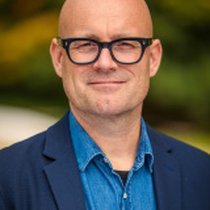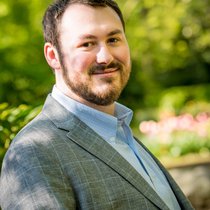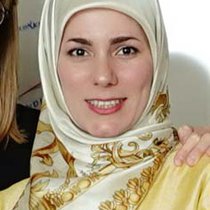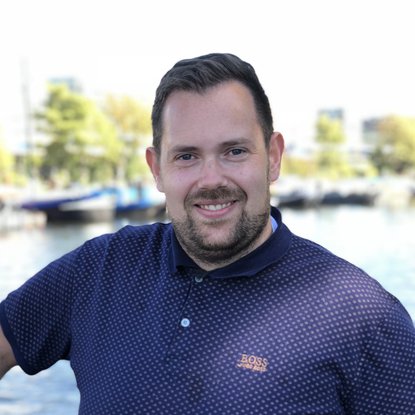During the AMS Summer School, the participants were challenged to come-up with a vision and design a proposal for the future urban development of Haven-Stad, in which smart (multimodal) mobility approaches and scenarios are applied. Amsterdam Haven-Stad was subdivided into different areas (on which the groups worked), each with their own characteristics and identity in terms of density, urban quality, industrial character, or the relationship with water. A complex task as the participants were asked to account for on-going trends, developments, policies and innovations as well as spatial characteristics of the areas: What is the (future) identity of the area? What type of function and use does and can the area have? What makes the area unique? What are the strengths and weaknesses? Who are going to be the users of the area? And how are they going to move around? And what type of mobility system do you need to support that?
After a week of excursions, site-visits, lectures, brainstorms, design exercises, presenting and feedback loops from the tutors, the groups presented their vision on each of the different areas. Participants were challenged to research, design, think critically and combine their personal background and experiences into one plan. Their final plans were presented to visiting critics of the involved organisations, among which the project team of Haven-Stad.
“Predicting the future of the mobility in Haven-Stad is not easy. There are so many trends nowadays that we have to take into account. Involve young and smart people in potential solutions makes it easier to go in the right direction”
Micha Sijtsma | Mobility Manager Haven-Stad | City of Amsterdam

The (mobility) challenges in Haven-Stad
Haven-Stad is a (former) harbor area North-West from the City Center currently under development. In Amsterdam there is a high demand for new residential and office space. With Haven-Stad the city of Amsterdam is able to create a new neighbourhood 40,000 to 70,000 dwellings and 45,000 to 58,000 employment places for the metropolitan region of Amsterdam. Important themes for the development of Haven-Stad are: mobility, sustainability and mixed use (80% dwellings, 20% business/commercial space). The programme site of Haven-Stad consists of various areas, among which the Sloterdijk station area with its national railway connections, the Westerpark, a large recreational facility for the city, some of the previous harbour areas and parts of the Northern IJ-banks.
The infrastructure and Sloterdijk railway station, the possibility for development and leisure at the waterfronts, the proximity of the area to the city center and former harbour and industrial identity are identified as strengths and assets in the area. However, some of the strengths are also a challenges. Although the area is very centrally located and there is a train station at the edge of the area, it is still very disconnected from the rest of the city. The amount of water (an asset for leisure and part of the quality of the area) forms a barrier between the different areas at Haven-Stad. Evenmore, there is a discrepancy between the developed and still underdeveloped (industrial) areas and the phasing of the development is part of the challenge.
The participants introduced various new solutions for mobility to integrate the area better in the Amsterdam network.
40 participants, 22 nationalities and many different academic back grounds.
“The AMS Summer School was a great way to engage with the City of Amsterdam and a diverse group of participants to develop ideas and concepts regarding the redevelopment of the harbor area. It was an intense week of working through various concepts and ideas for how the area can be reimagined from the current industrial harbor to a livable, green, and sustainable community for residents and businesses alike.”
Matt Bearden | MSc MADE Student | AMS Institute

Why is smart mobility essential in urban development?
Amsterdam is prospering, the city is growing, new homes are being built, new companies and talent continue to relocate here, and the city is becoming increasingly popular with tourists. If residents, visitors and businesses continue to travel as they do today, all forms of transport combined will grow in the coming years between 20% and 40%, and traffic will grind to a halt.
Good accessibility – with smart connections within the city and with the rest of the country and world – makes an important contribution to Amsterdam’s attractiveness for residents, visitors and businesses. Moreover, in Amsterdam, we value social diversity and inclusivity, which means providing everyone with equal access to good liveability and transport.
Mobility operates as the intersection between the city’s infrastructure and its city’s inhabitants. It is the central link in the well-functioning of a city and a key element in the organization of multi-modal transport. In doing so, it is not only about the connection to other areas, but also about sowing together the fabric of the area and the movement of people in the area itself.
“Sustainable urban development requires more sustainable transport systems as an inseparable part of urban life. These systems should be innovative to keep fast-pace of changing society in terms of technology, business and economic.”
Fatemeh Torabi | PhD Researcher at Department of Transport and Planning | TU Delft

This is a follow up of the previous Summer Schools at AMS Institute: Making the Metropolis in 2017 and Integrated Mobility Challenges in Future Metropolitan Areas in 2018, which was linked to the Stations of the Future/Gares du Futur event held in Paris. The outcome of this Summer School and the Paris event is presented in the book Stations as Nodes.
The City of Amsterdam, the ARENA: Architectural Research Network and Delft University of Technology (through Delft Deltas, Infrastructures & Mobility Initiative (DIMI), the Faculty of Civil Engineering and Geosciences and the Faculty of Architecture and the Built Environment), joined the Amsterdam Institute for Advanced Metropolitan Solutions (AMS Institute) in the organization of the interdisciplinary 2019 Summer School.
